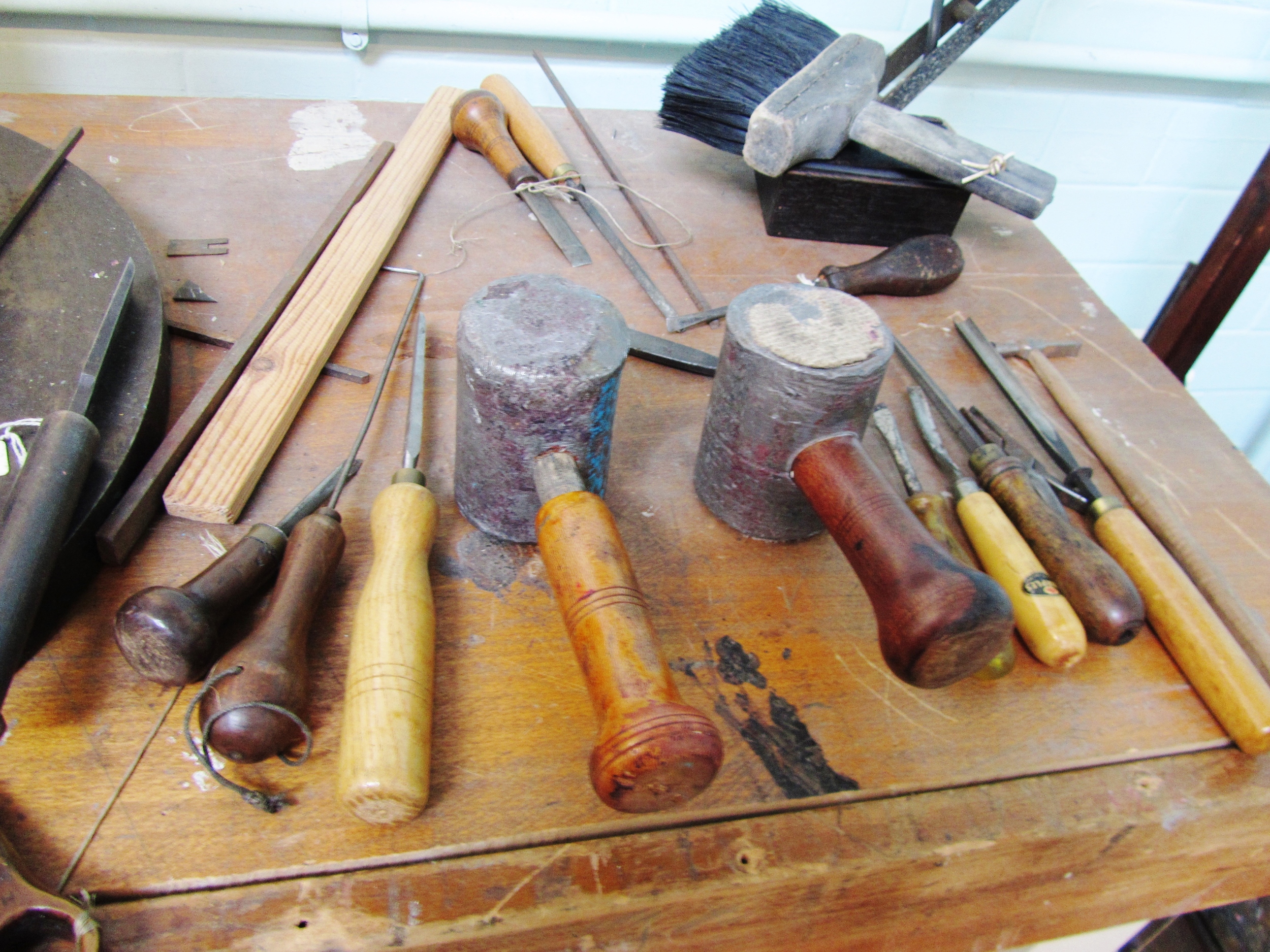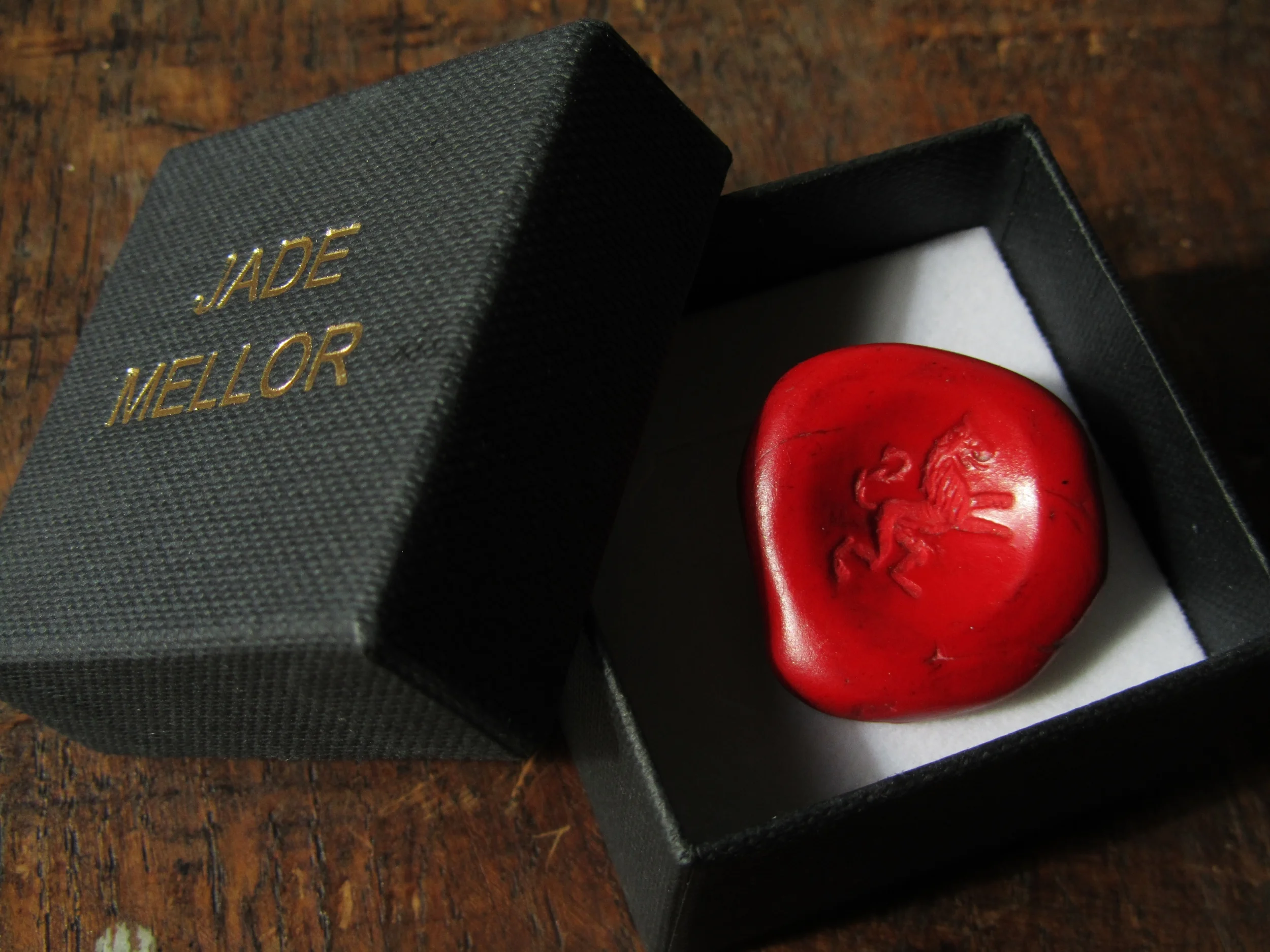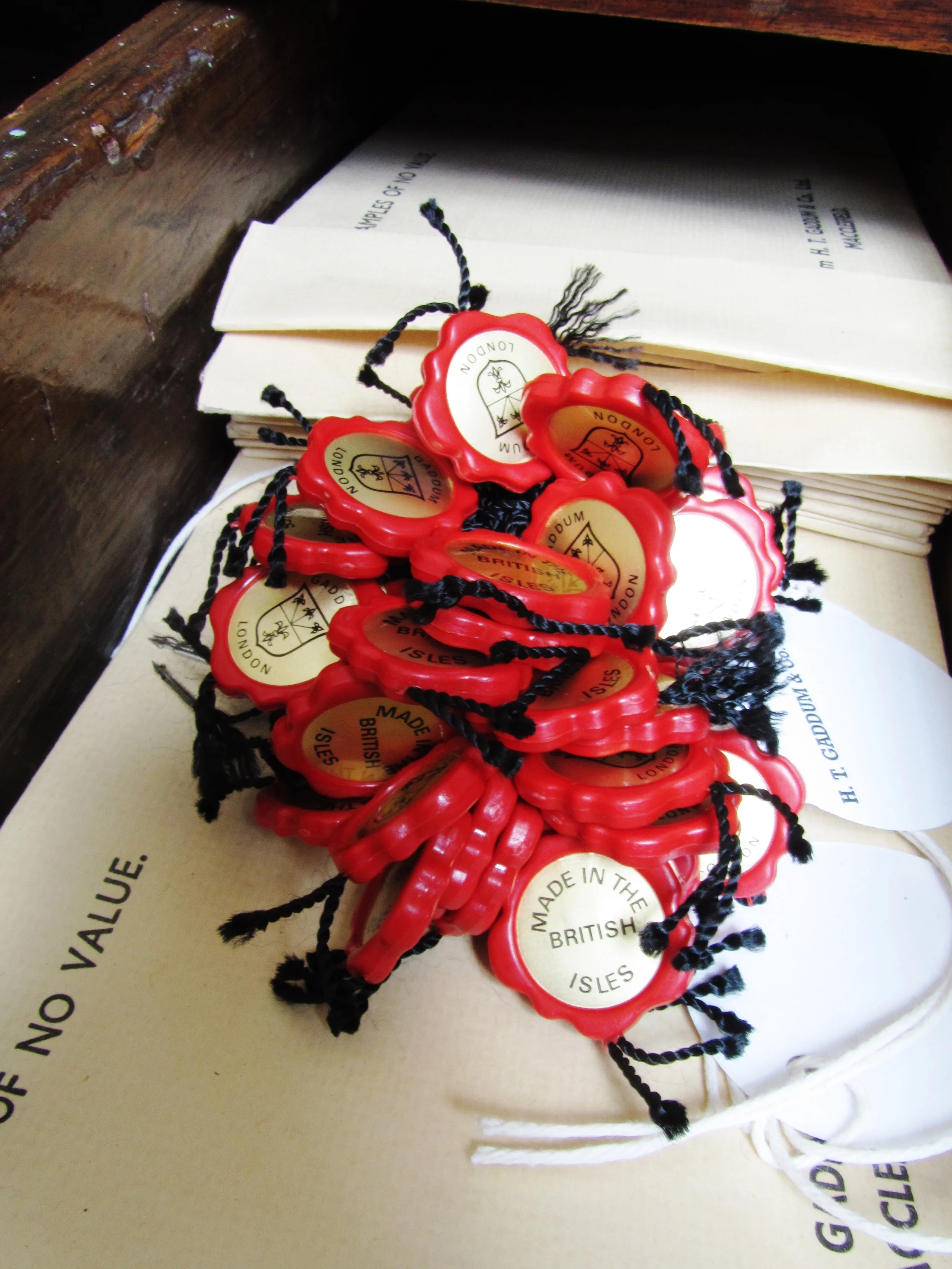Tools from the trade, Silk Museum, Macclesfield
"The old craftsmanship will survive. There is room for it in the modern world....The man who builds a boat for his own sailing and the woman who embroiders a quilt for her own home are getting satisfaction far beyond that given by any passive pleasure. Making things is a good life." W.B. Honey
Jade Mellor "Fasten" Necklace, Resin, metal powder & leather. One-off 2013
The Button Project exhibition is still available to check out at Macclesfield Heritage Centre. With around 300 buttons each hand made by a range of artists, designers and crafts people it is a showcase for personal skill and the joy of creating an object which is beautiful as well as functional.
The museum curator, Annabel Wills, says "The great thing about The Button Project is the way that it brings together the historical collections with contemporary artists. The town has its beginnings in the button trade, and Macclesfield silk buttons were all handmade. Today's makers help to keep that heritage very much alive."
One of my photos from a recent trip to Greece, a collection of ancient Fibulae brooch style
fasteners
Life Before Buttons
"Unlike most modern brooches, fibulae were not only decorative; they originally served a practical function: to fasten clothing, such as cloaks. Fibulae replaced straight pins that were used to fasten clothing in the Neolithic period and the Bronze Age. In turn, fibulae were replaced as clothing fasteners by buttons in the Middle Ages. Their descendant, the modern safety pin, remains in use today." Wiki
Decorative and functional fibulae brooches were used to fasten clothing before buttons.
After Buttons (clothing fasteners go electric! Well we all know of Lightening zips)
Selection of zips used in garments by Elsa Schiaparelli, a pioneer in this new garment fastening technology. Many of these pieces didn't survive or were in a fragile condition due to the unstable nature of the early synthetic materials. Images courtesy of V&A curating dept.
I made this necklace to show the harder edge of buttons. Cast from a selection of old pressed metal buttons, they would fasten functional clothing for working in. Made to be used and last, they showed their quality by having the companies name written on the button, like a designer label or branding motif today. Cast as a one off in resin combined with metal powder, the rest is made from leather and secured with a small steel hook at the back.
Lots of beautiful sewing machines, some huge and industrial, some small and neat for intricate work (in Macclesfield's Silk Museum)
Wood and metal printing block in Macclesfield's museum, it is full of beautiful objects like these used in their textiles production, often displayed "in situ".
Here's my button which you can see at the exhibition at Macclesfield's Heritage Centre until 8th Aug.
Macclesfield's SIlk Museum has plenty of ephemera from the old silk production on show. These original tags were a sign of quality for their products-made in the style of sealing wax-just like my resin and silver trompe l'oeil button!
The Button Project has been the work of glass artist Victoria Scholes. I'm so glad she had the idea and passion to create this exhibition, bringing together so many people who love making things.











